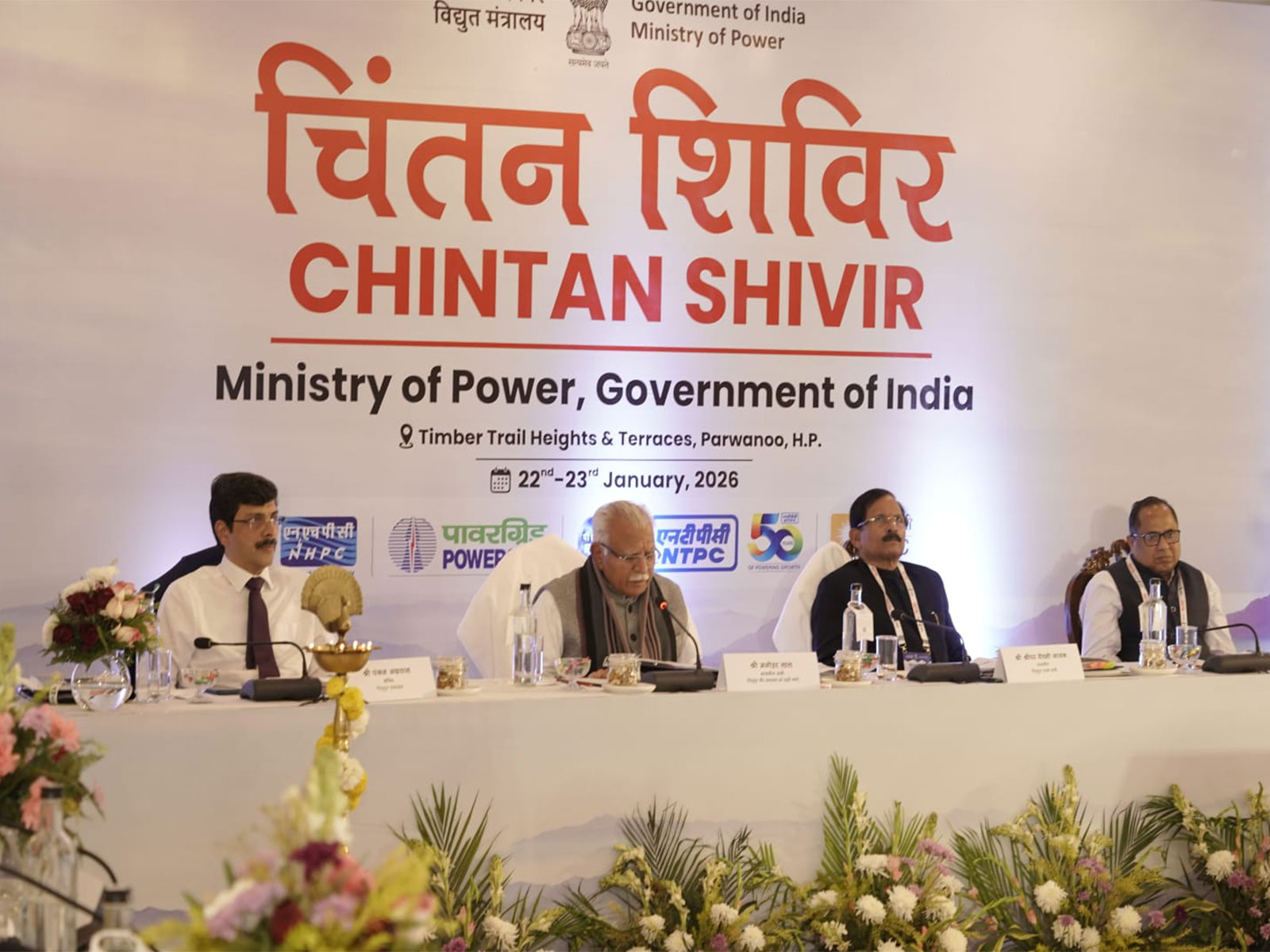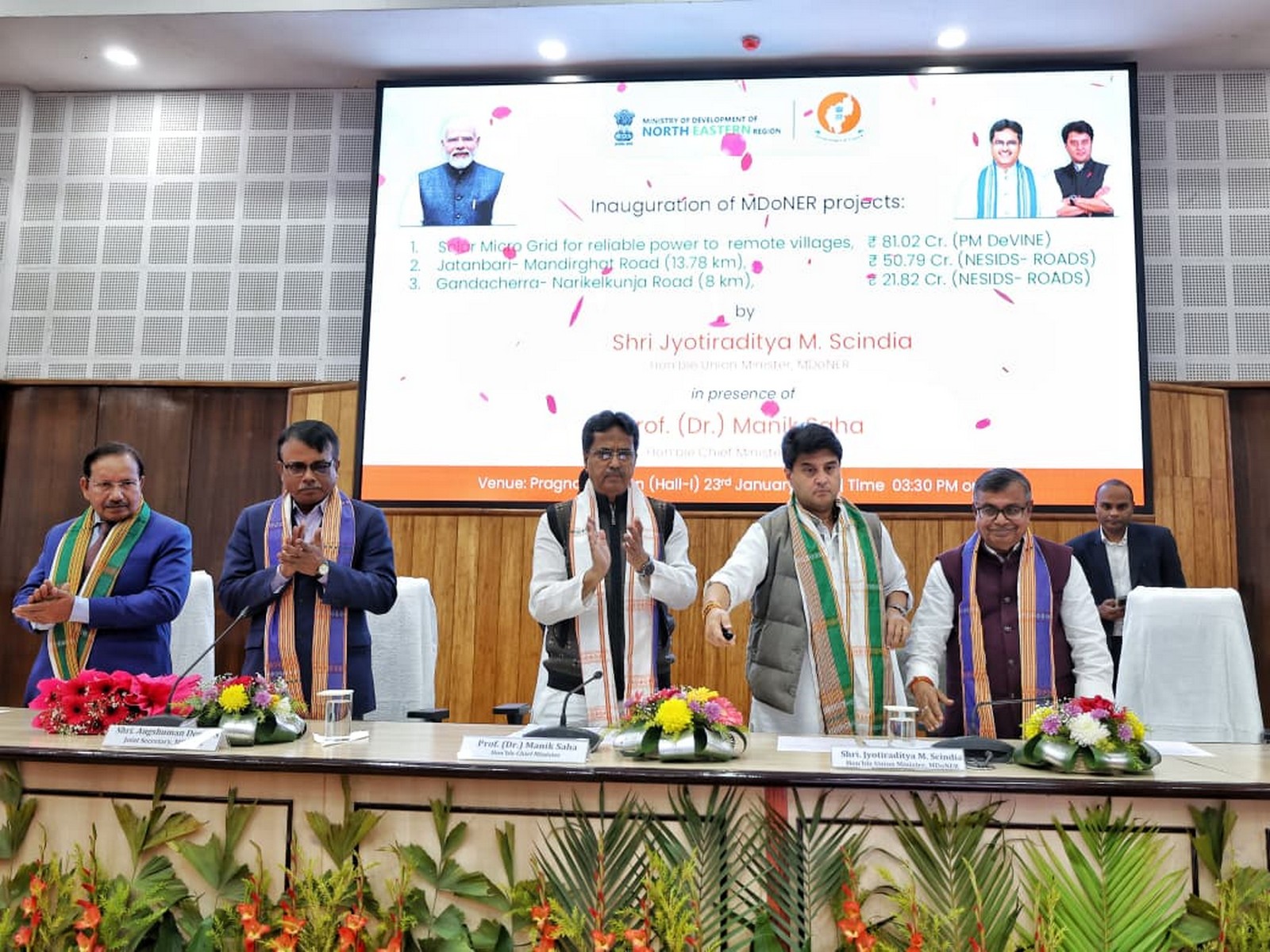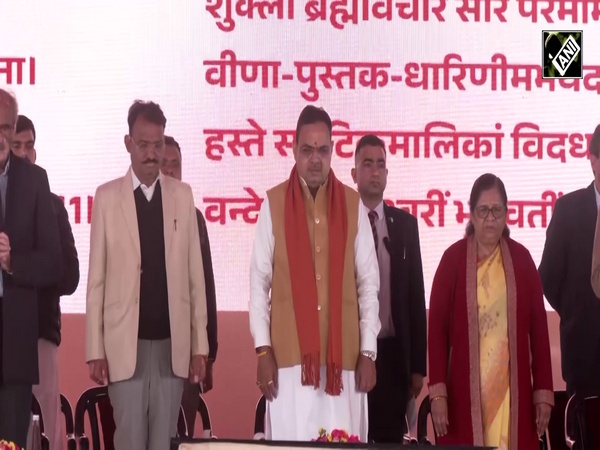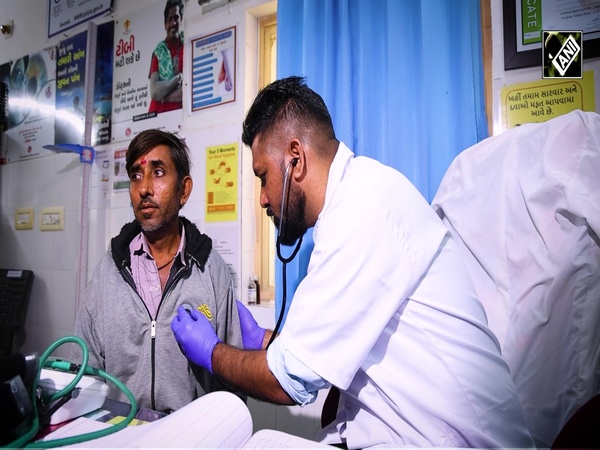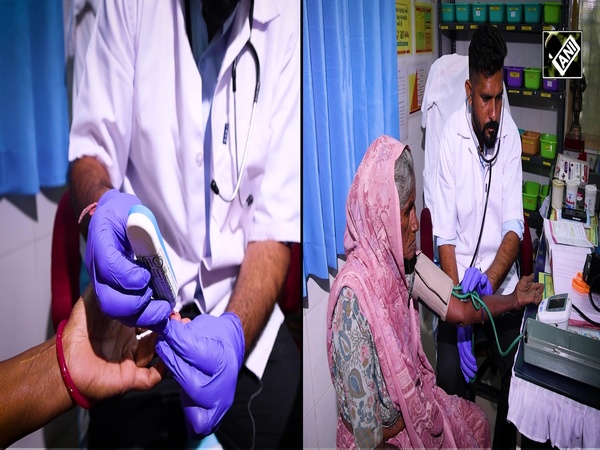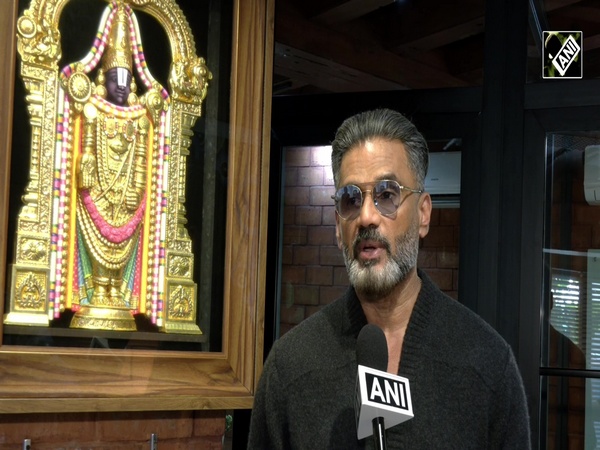IIT Guwahati hosts SERB-supported workshop on Engineered Hydroxyapatite for combating bone infections, antibiotic resistance
Jul 21, 2025
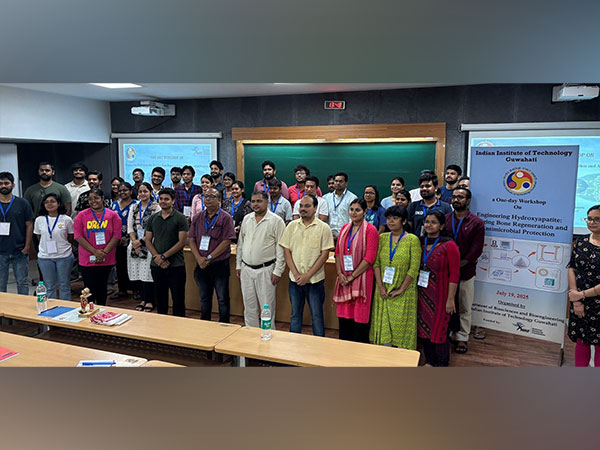
Guwahati (Assam) [India], July 21 : The Indian Institute of Technology Guwahati successfully organised a one-day SERB-Anusandhan National Research Foundation (ANRF) supported workshop titled "Engineered Hydroxyapatite: Bridging Bone Regeneration and Antimicrobial Protection", a press release said.
The event held on July 19 brought together experts, researchers, and students to explore cutting-edge developments in biomaterials, particularly hydroxyapatite (HAp), a calcium phosphate compound renowned for its exceptional biocompatibility, bioactivity, and close resemblance to the mineral composition of human bone.
The event was organised for the dissemination of knowledge about the SERB-sponsored project "Development of Fe and Zn co-doped Hydroxyapatite for the Treatment of Osteomyelitis".
During the inauguration, Prof. Utpal Bora, the Chairman of the event and the Head of the Department of Biosciences and Bioengineering, IIT Guwahati, highlighted the significance of tissue engineering and its translation to real-world medical applications.
The convenor of the event, Prof. Lalit M. Pandey, Department of Biosciences and Bioengineering, IIT Guwahati, outlined the workshop's core objectives and agenda, focusing on the interdisciplinary applications of engineered HAp in both regenerative medicine and infection control.
Prof. Pandey also presented a detailed discussion on the bottom-up synthesis approach for HAp-based nanomaterials, emphasising how fine-tuning at the nanoscale can significantly modify the bulk properties of a biomaterial.
The technical sessions featured engaging lectures by distinguished experts, including Prof. D. Pamu (IIT Guwahati), Dr Apurba Das (Handique Girls' College Guwahati), Prof. Devasish Chowdhury (IASST, Guwahati), and Dr. Lalit M. Pandey (IIT Guwahati). The talks covered a broad spectrum of topics, including HAp synthesis, advanced characterization techniques, antimicrobial surface coatings, and biopolymer nanocomposites, highlighting innovative strategies to enhance the functional properties of hydroxyapatite.
A key highlight of the workshop was an intensive hands-on training session, which engaged over 50 registered participants from various academic institutions across the Northeastern region. Attendees gained hands-on experience in various aspects of the synthesis and characterization of nano-HAp, offering invaluable exposure to nanoscale engineering techniques that preserve HAp's biological integrity while enhancing its functionality.
The workshop highlighted the potential of HAp for various biomedical applications, including bone tissue engineering, scaffolds, drug delivery, and surface coating.
The event also explored emerging cross-disciplinary applications of nano-HAp beyond orthopaedics, such as photothermal therapy, biosensing, and environmental remediation. The experts also outlined the challenge of integrating novel functionalities into HAp while preserving its crystalline structure and biocompatibility, sparking discussions on innovative biomedical solutions.




